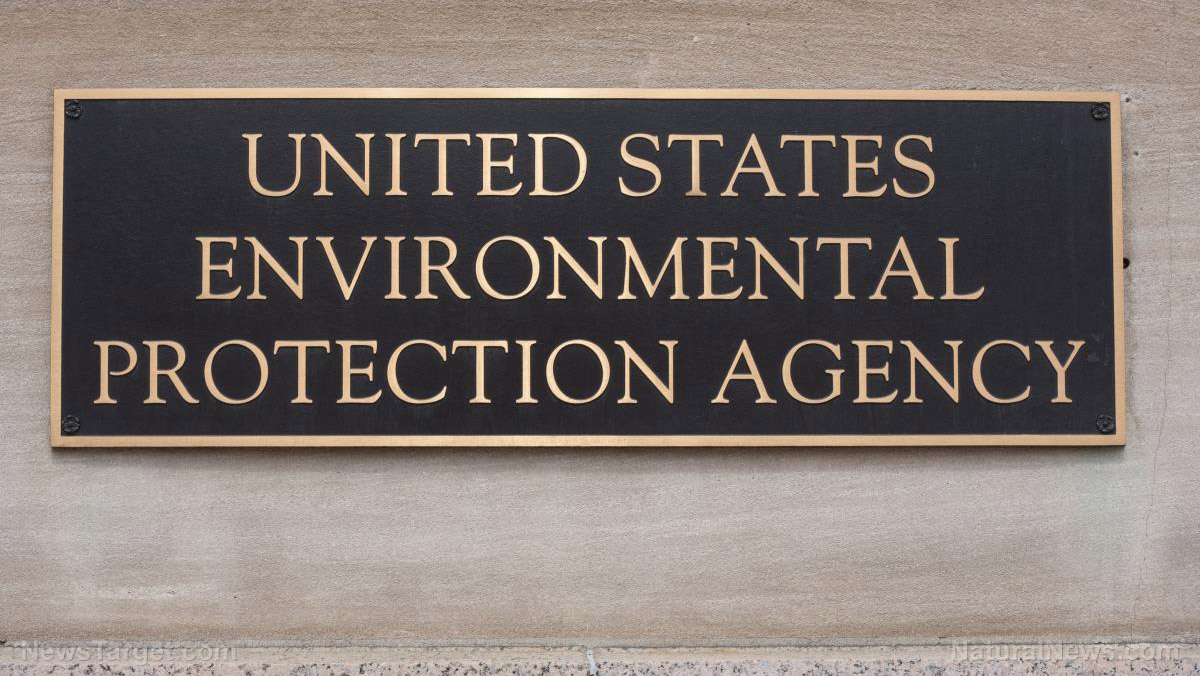Is it time for a nationwide ban on fluoridated water?
10/09/2024 / By Lance D Johnson

Do community leaders reserve the right to mass medicate every person in their community using the water supply as a vector? What if that medicine was eventually exposed as a POISON decades later? What if that POISON was damaging the brains of children and stunting the cognitive development of the next generation?
Since 1945, municipal water supplies have been mass medicated (poisoned) by hydrofluorosilicic acid (fluoride). A byproduct of the phosphate fertilizer industry, fluoride is captured by industrial scrubbers, and then barreled up and sold unrefined to communities across the country. Today, around 72.7% of U.S. communities are subject to this toxic chemical.
But with new evidence coming out against fluoride, is it time for a nationwide ban on fluoridated water?
EPA must take regulatory action against fluoridated water, so why not just ban it?
In a landmark decision, a federal court recently ruled that water fluoridation at the current levels poses an “unreasonable risk” to children, markedly reducing IQ and harming their cognitive development. The ruling, issued on September 24, requires the U.S. Environmental Protection Agency (EPA) to take regulatory action in response to the lawsuit filed by the Fluoride Action Network and several other organizations.
Back in January 2011, the U.S. Department of Health and Human Services (HHS) announced plans to lower the recommended fluoride level in drinking water, citing a rise in dental fluorosis cases among children. This condition, caused by excessive fluoride exposure, prompted federal agencies to put limits on fluoride levels in water. In 2015, federal guidelines were finally revised, establishing 0.7 parts per million (ppm) as the standard fluoride level for community water systems.
However, according to The National Toxicology Program, even this level of .7 ppm causes health problems in children, harming their cognitive development and lowering their IQ in a dose dependent manner. So why regulate this chemical at all, if the most scientifically-appropriate public health measure is a complete ban on fluoride?
Former fluoride advocate now speaks out against the poison
Rick North, a former advocate for fluoridation shared his transformative experience after reviewing a 2006 report by the National Academy of Sciences. “I always thought fluoridation was fine,” North said, reflecting on his past beliefs. “But the science contradicted the statements from fluoridation promoters.” Since that turning point, North has dedicated himself to opposing fluoridation, serving as a board member of the Fluoride Action Network.
The lawsuit, initiated in 2017, faced numerous delays, as the EPA tried to postpone proceedings to protect the reputations of those who had promoted fluoride for decades. A key moment in the case came with the release of a report from the National Toxicology Program, which indicated a link between fluoride exposure and reduced IQ in children. This report played a crucial role in the judge’s decision, as North noted, “The evidence was compelling.”
However, North pointed out that economic interests and professional reputations have played a significant role in the continuation of this practice. The EPA currently has 60 days to respond to the court ruling, but the implications of this decision may resonate far beyond that timeline. As communities weigh the risks associated with fluoridation, the conversation around public health, scientific evidence and regulatory oversight is likely to intensify in the coming months and years.
Following the ruling, communities across the U.S. have begun to reevaluate their fluoridation practices. Cities such as Abilene, Texas, and Yorktown, New York, have paused or stopped fluoridation, a move that highlights local autonomy in public health decisions. North emphasized that many communities do not need to wait for the EPA’s response, stating, “It’s their decision to fluoridate or not.”
While this is true, citizens across the United States should not have to wait for their community officials to weigh the evidence and consider their reputations. If making America healthy again is going to be a serious political movement, then water purity should be top priority. Political leaders should be informing the public that they are being poisoned by fluoride, while petitioning Congress to ban water fluoridation across the United States to protect the welfare of the people.
Sources include:
NIH.gov [PDF]
Submit a correction >>
Tagged Under:
awakening, brain damage, children's health, clean water watch, cognitive development, community health, court ruling, EPA, Fluoridated Water, Fluoride, fluoride ban, human rights, informed consent, IQ, leadership, national security, poisoned water, poisons, progress, regulatory oversight, welfare
This article may contain statements that reflect the opinion of the author
RECENT NEWS & ARTICLES
COPYRIGHT © 2017 EPA WATCH




















